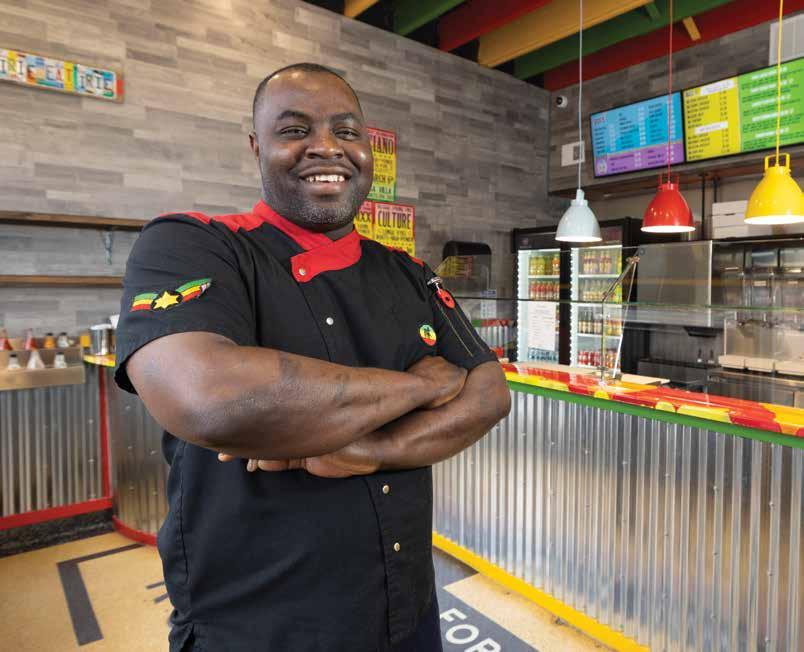
2 minute read
Institute for Poverty



TRI - C TIMES “I THINK THE BIG THING IS DESTIGMATIZING THE IDEA OF POVERTY.”

MANY COMMUNITY COLLEGE STUDENTS MUST OVERCOME HUNGER AND HOMELESSNESS. TRI-C’S INSTITUTE FOR POVERTY AND URBAN EDUCATION GIVES THEM THE TOOLS TO ESCAPE FINANCIAL INSTABILITY AND FIND ACADEMIC SUCCESS.

Rajah McQueen-Smiley spends each Friday at a desk in the Student Life office on Cuyahoga Community College’s Metropolitan Campus. During any given shift, she sees a handful of students come in to use the food bank.
The boxes, cans and jars tucked in backpacks help the students quell hunger and better focus on their classes. Students continually empty the shelves. Last year, more than 4,000 nonperishable food items flowed out of the campus pantry.
“This is definitely a necessary service,” said McQueen-Smiley, a senator-at-large in student government. “They need the items that we have.”
This is not news to representatives of Tri-C’s Institute for Poverty and Urban Education. For many students, where to find their next meal is a worry. So are housing, transportation and other basic life needs.
The institute formed four years ago to find short- and longterm solutions for Tri-C students struggling to get by. Its ultimate goal is to help lift those students out of poverty, providing the boost to help them reach the middle class by middle age.
“We’re aware that we have students who are in poverty,”
said Courtney Clarke, associate dean of social sciences at Western Campus and associate director of the institute.
And if they’re here within our walls, we have the obligation to help them.”
The effort began with conversations, both casual and intellectual, about the relationship between education and intergenerational poverty, said Julia Krevans, associate professor of psychology and director of the institute.
Issues raised during the 2016 election cycle — including growing income inequality, the loss of real wages by those already struggling and the negative social consequences of economic decline — accelerated the creation of the institute. “I think many at the College felt a call to action,” Krevans said.
The institute has three focus areas: researching and tracking long-term outcomes of Tri-C graduates; establishing resource centers on Tri-C campuses; and helping students understand social capital, the unspoken rules of culture that help or hinder success.

The last area is particularly critical. Many students in poverty don’t understand how to network or how to conduct themselves in a job interview — essential skills for career building, Clarke said.
The institute’s initial research found that 90% of Tri-C students had no LinkedIn account. Even more — 95% — had never applied for a summer internship.

Through hands-on workshops, the institute hopes to change those current realities. There’s also hope of establishing campus support centers that provide everything from food to legal services to financial assistance.
“I think the big thing is destigmatizing the idea of poverty,” Clarke said. “A lot of students have that in their lives. We can help them, and we should help them.”











